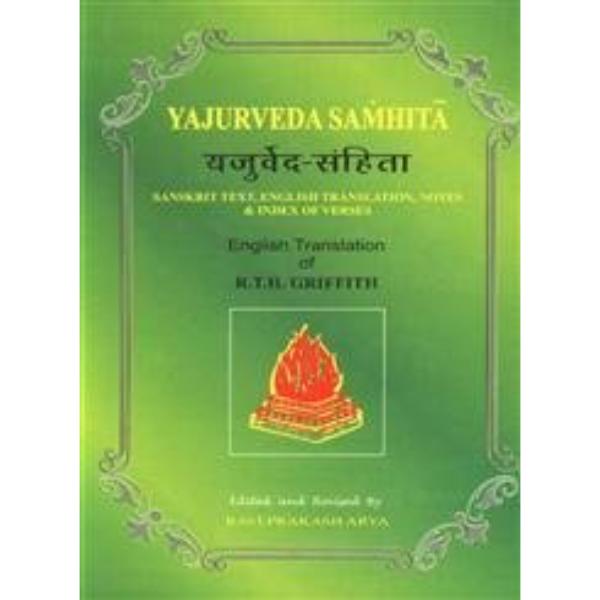
Yajurveda Samhita - Sanskrit - English | By Ravi Prakash Arya/ Hindu Vedas Book For Vedic Study
The current Yajurveda edition, which includes Mahidhara's English translation and Griffith's commentary on Uvaja, is notable for the following key elements. To ensure that even a layperson can understand the contents of the translation, the outdated usage of the English version has been replaced with the matching modern terminology. For example, the comparable phrases in modern English have supplanted the old pronominal forms like thy, thou, thee, thine, etc. The equivalent usage in modern English has also replaced the employment of verbal forms in ancient English. Some Vedic terminology, including Savita, hotä, etc., were inappropriately employed by Griffith as Savitar, hotar, etc. in the English translation.
Such Vedic phrases have been kept in their authentic form in the current edition. Without using diacriticals, Griffith's version merely converted Sanskrit phonemes into Roman ones. In the current edition, much care has been taken to ensure that the Sanskrit phonemes have the necessary diacritical markings, given the scarcity of diacritical signs. This edition's most noteworthy feature is its full index of Yajurveda mantras for easy reference, along with the original Mantras in Devanagari script. Griffith did not duplicate the translation of the Mantras (20–31) of the 23rd chapter by Mahidhara and Uvata.
The subject matter of the nine stanzas (20–29), in his opinion, are not repeatable, not even in the semi-obscurity of a sophisticated European language; without them, stanzas 30, 31 would be incomprehensible. Contrary to what Mahidhara and Uvata's translations suggest, the stanzas lack any sexual colors. Therefore, in order to prevent readers from being misled by the translations of Mahidhara and Uvata as well as by Griffith's comments regarding them, the current author believes it is appropriate and fitting to present the true meaning of the aforementioned 11 stanzas.
